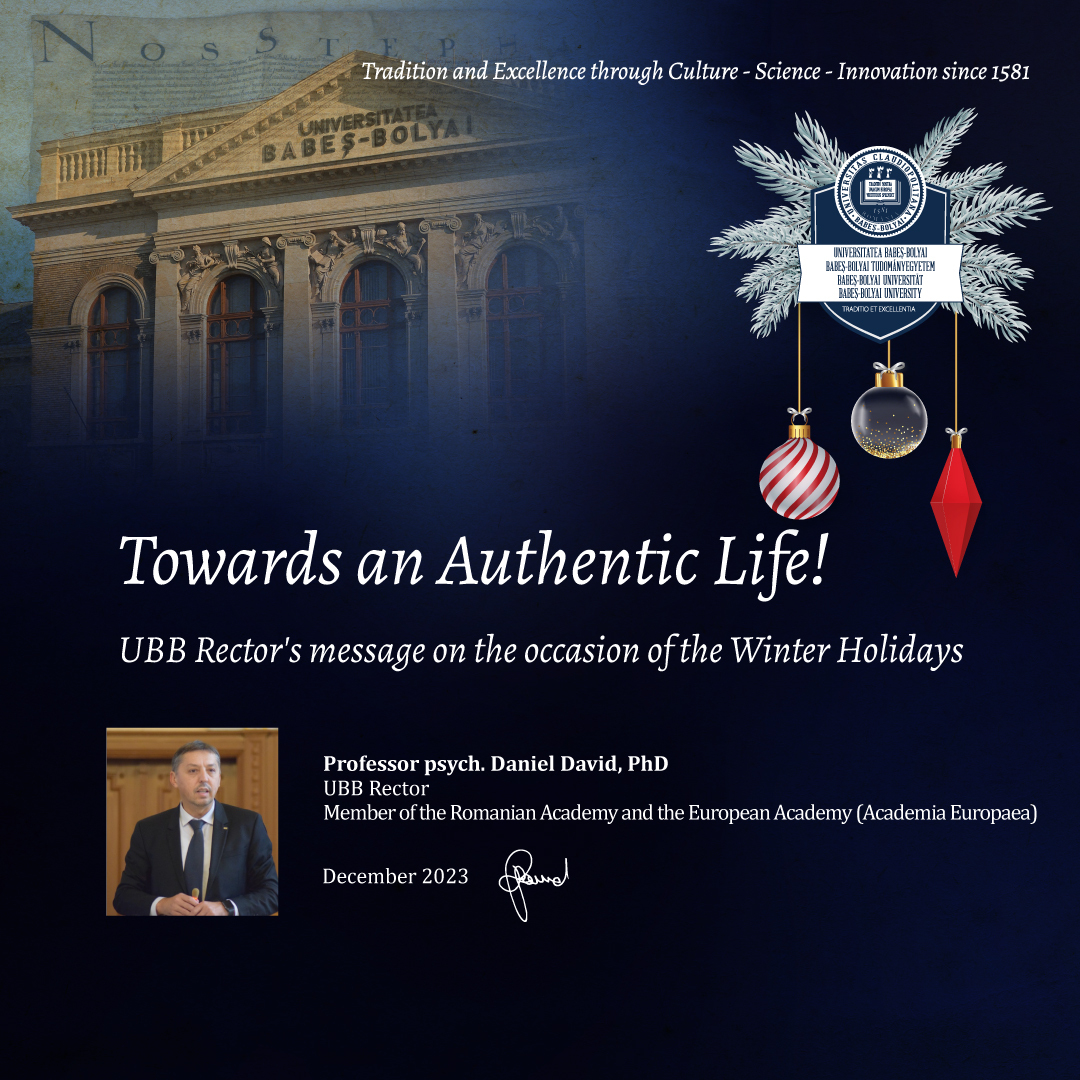
In keeping with my annual approach during my tenure as rector, I am addressing our community during the winter holidays with a message that also carries a psychotherapeutic meaning and/or serves a personal development and improvement function. For me, this is also a personal exercise in gratitude stemming from a commitment to an authentic life, one that I am now attempting once again!
Drawing from positive cognitive-behavioral psychology, in my view there are four things that can support better mental and physical health and, by extension, a more authentic life. An authentic life is one that is enjoyable, good and purposeful/meaningful, reconciled with the past, content in the present and optimistic about the future. Certainly there are many psychological factors that contribute to an authentic life, but these four remain among the fundamental ones, backed up by hundreds of psychology studies, and resonate well with the occasion of the winter holidays. So let’s look at them briefly and then implement them in our own life to live it as authentically as possible.
Meaningful life is about having a ‘mindset’ defined by two or three personal cardinal virtues that inform most of our lives (of what we do). Simply put, value means all that is valued by society (e.g. ‘family’, ‘career’, ‘work’, ‘selflessness’, etc.). Hence, we ought to acknowledge these personal cardinal virtues and implement them in our lives!
Gratitude describes the psychological process whereby we foster an attitude of appreciation for our achievements and/or for our benefits, as well as appreciation for the ‘agent’ instrumental (especially by design) in our achievements/benefits. This ‘agent’ may be spiritual, human or natural. For it to be effective and authentic, however, appreciation must be (1) rightly justified and (2) expressed intrapersonally (e.g. in thought or a personal diary, etc.) and interpersonally (e.g. oral communication, letters, etc.), not just experienced subjectively. Gratitude may therefore be expressed in thought or written in a diary/letter and, best of all, directly shared with the relevant people (e.g. ‘I thank X for Y’).
Forgiveness involves the psychological process by which we generate the attitude that begins with accepting that someone has wronged us and intentionally responding in a positive and balanced way to that person. Acceptance does not mean that we agree with something, but that we acknowledge its existence. The key thought, expressed mentally and shared when possible with the relevant person, is ‘I forgive you!’. Sometimes forgiveness should also be directed at oneself, in the formula ‘I forgive myself!’. Finally, let’s also be aware of how our mistakes have impacted on others and, if possible, ask for forgiveness from those we have wronged – the key thought here is ‘Forgive me!’; some people may not forgive us, but we will be more at peace that we have tried our best to make amends.
Compassion is the psychological process by which we generate a positive attitude towards ourselves and/or other people, as individuals (not necessarily towards their actions) in general and particularly in challenging situations (for ourselves or others). Compassion means therefore more than empathy and unselfishness and needs to be expressed verbally and behaviourally (especially through supportive and positive reinforcement behaviour).
With their religious significance as well as their sense of a new beginning, the winter holidays are an excellent framework to exercise and embrace these psychological mindsets (attitudes) in a rational (flexible, not rigid) way, with a positive impact, not only on our mental and physical health, but also on living an authentic life. My advice is to apply such attitudes whenever we experience psychological distress and on a monthly basis, as a preventative and personal optimisation/development tool. Let’s begin with implementing these attitudes this month, on the occasion of the winter holidays, so that we may start the year 2024 in the best possible psychological frame of mind, with a sense of living an authentic life!
Blessed Christmas, Happy New Year and a Merry Festive Season!
Professor psych. Daniel David, PhD
UBB Rector
Member of the Romanian Academy and the European Academy (Academia Europaea)


